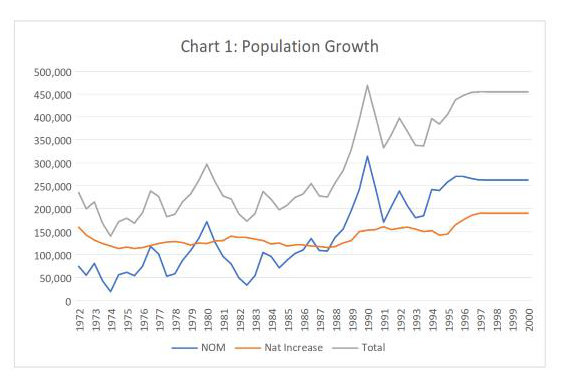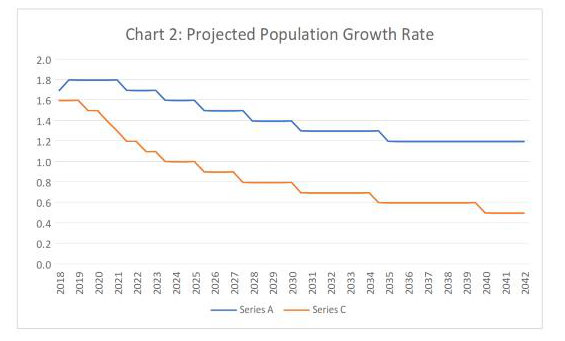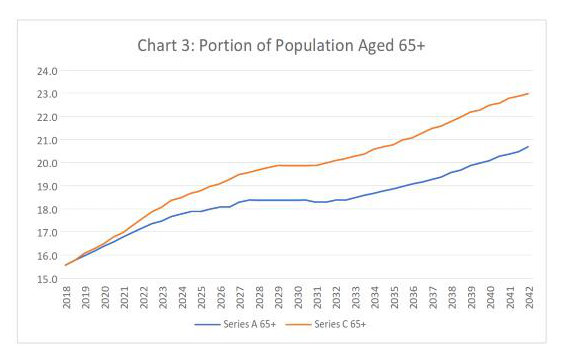Scott Morrison says Australia’s economy will have to expand by 3.75% per annum for the next five years to recover from the corona virus recession.
Just to put that in context, Australia’s economy has not grown by more than 3% in any year since 2011-12 when the economy was benefiting from the massive levels of stimulus that had been pumped into the economy by the Rudd/Gillard Governments.
In 2018-19, the economy grew by a paltry 1.9%. And in 2019-20, the Government has already said we will be in recession.
Another recession in 2020-21 is quite possible with the Government’s planned withdrawal of both Job Keeper, its intention to reduce the level of Job Seeker and international borders remaining indefinitely closed.
The bring forward of some infrastructure projects will help but will that be sufficient to achieve economic growth of 3.75% per annum for five years?
In its ten year budget plan published with the 2019 Budget, the Government had forecast Australia would average 3% economic growth for most of the 2020s.
This relied on a massive increase in population growth to absolute sustained levels Australia has never before experienced (see Chart 1).

The Government was forecasting net migration averaging 268,000 per annum and our fertility rate rising to 1.9 babies per woman from its record low of 1.74 babies per woman in 2018.
The Government’s forecast baby boom was never going to happen. We are more likely to see the fertility rate fall well below 1.7 babies per woman if not in 2019 almost certainly from 2020.
The increase in fertility the Government forecast would raise the contribution of natural increase from 146,800 in 2018 to 167,300 in 2019 and then to 192,200 by 2021.
The ABS last week reported the actual outcome in 2019 was 139,200, the lowest level of natural increase since 2005 when Australia had a much smaller population and over 27,000 less than the 2019 Budget forecast.
The actual outcome for net overseas migration in 2019 was 210,600, some 60,000 less than the Budget forecast of 271,700.
Under current policy settings, net migration is unlikely to be much above 175,000 per annum once international borders are fully open – that is almost 100,000 per annum less than the Government’s 2019 Budget forecast.
This will mean Australia’s population growth rate will decline much faster than assumed in the 2019 Budget which was close to the assumptions used in Series A in the ABS population projections whereas current policy is likely to deliver an outcome closer to Series C (see Charts 2).

This also means the population will age much more rapidly. Chart 3 shows the portion of people aged 65+ in the population will rise from around 15.5% currently to 20.0% by 2040 rather than the 18.4% implied by the 2019 Budget forecasts.

From 2020, the last of the baby boomers will become eligible for the pension phase of superannuation. From 2027, all the baby boomers will be eligible for the age pension subject to means testing.
Peter Costello warned of this in his 2002 Intergenerational Report when he forecast that economic growth during the decade of the 2020s would average 2% per annum.
From 2020, Australia enters its second decade when the working age to population ratio is declining – this ratio peaked for Australia in 2009.
Lived experience over the last 30 years shows that once nations pass their working age to population ratio peak, economic growth slows, productivity declines, private consumption weakens, business investment becomes anaemic and government budgets steadily deteriorate.
No major developed nation has achieved anywhere near an average of 3% per annum economic growth once past this peak let alone the Prime Minister’s ambition of 3.75%.
The OECD as a whole achieved only 1.48% per annum economic growth once its working age to population ratio peaked.
Thus the Prime Minister is telling us Australia is to achieve 3.75% per annum economic growth as our population growth rate slows sharply and as we, and the rest of the developed world, enter the most aged decade in our history.
Such fantasy is a very poor basis for setting policy.
Better to acknowledge the ageing challenge we and the rest of the developed world face and start from there.
It is time to stop treating the Australian public as fools on our economic future.




